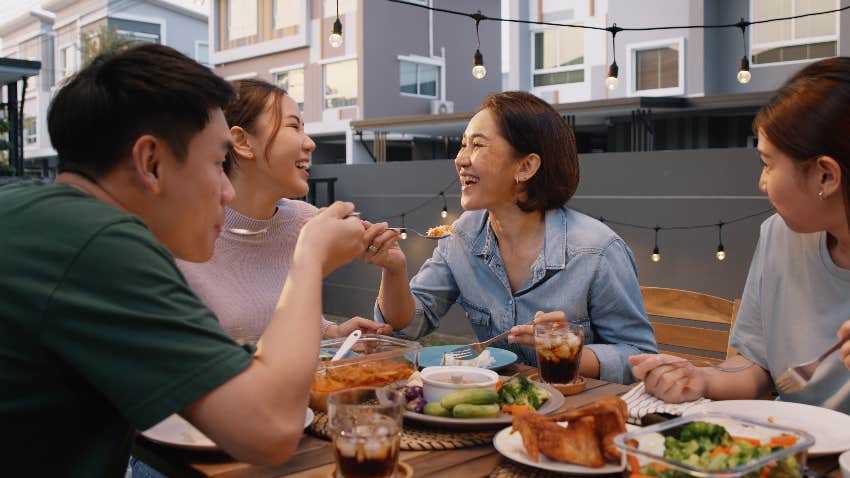Psychology Says If You Can Master These 9 Skills, You'll Be Genuinely Popular With People
How to be genuiniely popular with people in a way that's not fake or contrived.
 Obradovic | Canva
Obradovic | Canva We all want to fit in. We want to be genuinely popular. But what we think of as popularity is a lie. The whole idea of popularity first surfaced in middle school. There was this little group of twelve-year-old girls who wore Bonne Belle Lip Smackers and had more Lisa Franks and liquid crystals in their sticker books than anyone else.
Except it's all a myth. Life cannot be controlled. The only thing you can do is to train your mind, body, and spirit self to deal with it. Do you want to know how to be popular? Master these skills, psychology says, and you will be.
If you can master these 9 skills, you'll be genuinely popular with people:
1. Show up and keep showing up
All a relationship means is showing up when people need you. This means being present and supportive during difficult times. It is strongly linked to positive relationship dynamics, fostering trust, deepening connections, and significantly contributing to overall well-being.
A 2023 study highlighted the importance of social support and the adverse effects of feeling isolated or unsupported when someone doesn't show up for you. This concept is often tied to the fundamental human need for belonging and connection.
2. Take time to build relationships with people
 Alberto Menendez Cervero / Shutterstock
Alberto Menendez Cervero / Shutterstock
You can't just arrive and take the place over. You want to be a friend, not a conqueror. You are not Napoleon over here, so calm down.
3. When you show up, offer helpful
Do the work. Be prepared to do a lot of work. This is strongly linked to positive social and emotional outcomes, including increased well-being, stronger relationships, and a sense of belonging.
Our innate desire to empathize and connect with others often drives this. Research by a Stanford psychologist also suggests that acts of kindness trigger reward systems in the brain, making helping others intrinsically rewarding.
4. Be generous with your time, words, and affection
The little things, like kind words, can make all the difference to somebody. Being generous with your time by giving it to others through acts of kindness or volunteering can significantly boost your sense of well-being, happiness, and even perception of having more time despite objectively not having more hours in the day.
This phenomenon is often called the time affluence effect when giving time can make you feel like you have more of it. For the most significant psychological benefits, a 2017 study concluded that the time you give is aligned with your interests and values, making giving more meaningful.
5. Stick around when bad stuff happens
That's when you're needed most. It's easy to be a party guest, but harder to clean up and serve the food at a funeral (this is both literal and figurative).
6. Be a problem-solver, not a blamer
 Chay_Tee / Shutterstock
Chay_Tee / Shutterstock
No one wants to be that person who is always starting drama for attention.
7. Don't seek attention
If you must receive attention, let it be from your happy achievements rather than from being a drama queen or victim who sucks all the joy and energy out of every situation.
8. Forgive the mistakes and bad days of others
Give comfort, not judgment. This can be your new mantra. Get yourself a mala and repeat it 108 times.
9. Embrace your weirdness
I am so weird and I don't even care anymore. I used to try to hide it and act in some way that I imagined was how normal people acted, but it was a disaster. People are attracted to people who are authentic, not big phony jerks. Be real by loving what you love no matter how odd it might be to someone else or how uncool it is.
Authenticity is sincerity and telling the truth about who you are. Sadly, we think if we do this no one will like us, but it's the opposite. The good ones will gravitate to you when you dare to be real. The haters? Forget 'em. They're trapped in their illusion. You don't need them.
Victoria Fedden is a writer and author of Amateur Night at the Bubblegum Kittikat and This is Not My Beautiful Life. Her writing has appeared in Real Simple, Chicken Soup for the Soul, Huffington Post, Redbook, Elephant Journal, Scary Mommy, and more.

